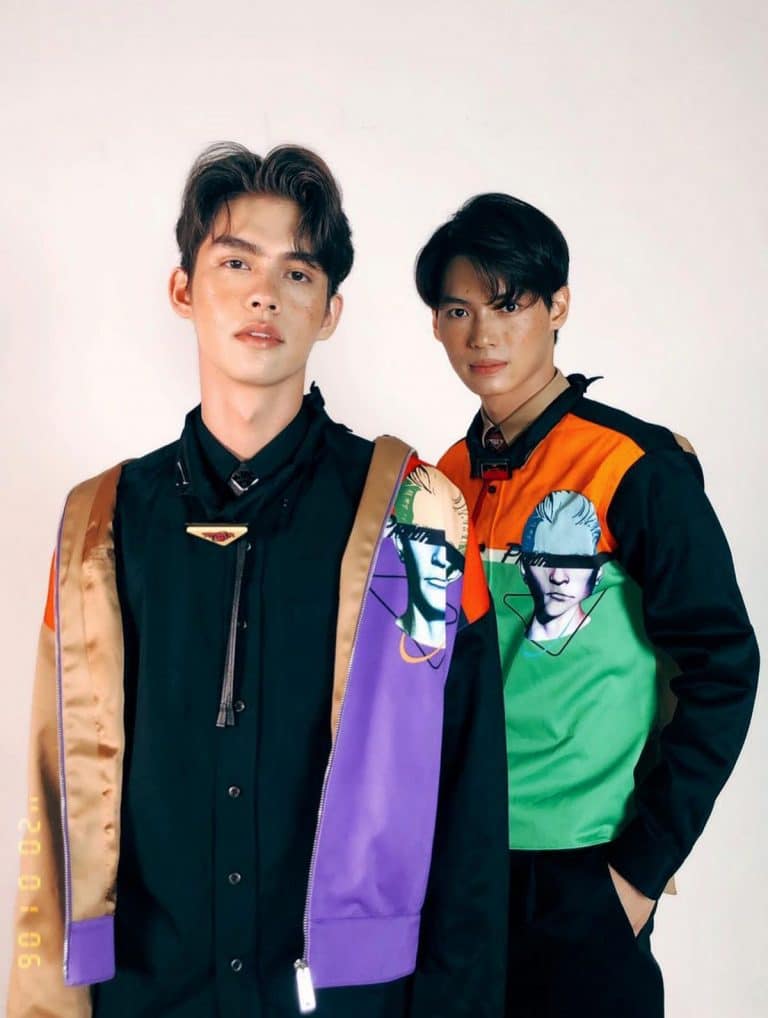
Opinion
Why I’m obsessed with Thailand’s ‘Boys Love’ culture
By Malavika Pradeep
Opinion
Why I’m obsessed with Thailand’s ‘Boys Love’ culture
By Malavika Pradeep
Published Feb 15, 2021 at 11:29 AM
Reading time: 3 minutes
Entertainment
Feb 15, 2021
The YouTube algorithm is one of the craziest internet phenomena in existence. For example, if you look up ‘tan buns’ at 3 a.m., you can either choose to watch aesthetic milk buns tanning under the sun or two dudes making out and shooting each other into the river. That’s probably how I was introduced to Thailand’s ‘Boys Love’ genre. And before I start whipping out terms native to fellow fujoshis, here’s a gentle initiation to ‘Boys Love’, one of the most viral genres of East Asian entertainment to date.
Boys Love (BL) originates from yaoi—Japan’s homoerotic fiction featuring relationships between male characters. With roots in webtoons and anime, the genre has evolved into a culture ever since its live-action debut with films and dramas.
BL is primarily created by women for women, with the fanbase typically consisting of straight women in their early 20s (a triggering insight, I know). This is probably one of the major reasons why casting crews reel in the hottest actors for lead roles. As for the character and story tropes, they commonly revolve around college romance, something the audience themselves can relate to. Although recent series like A Tale of Thousand Stars and Manner of Death feature dark and mature workplace romance, college romance is always a preferred trope due to its popularity.
View this post on Instagram
Most fujoshis (read: female BL fans) admit to liking these dramas since they feature a “sensitive” side of men that is not present in everyday lives. For me, they are all about favourable depictions of the LGBTQ+ community. Sure, the characters are initially confused about their preferences, but the others around them are relatively unfazed. Those ‘against’ the relationship later reflect on their beliefs as well and do so without associating any labels to the couple’s preference. In short, they idealise the concept of an inclusive environment we increasingly seek to live in.
But what’s so fascinating about the genre? We’ve got plenty of LGBTQ+ films and series in the western media too, right? What makes the BL genre so addictive? Well, I like to equate BL to a rabbit hole—there is no climbing back up once you fall in. It’s similar to Korean pop music and its fandom. There is way too much content revolving around the genre, other than the dramas themselves, for fans to get hooked.
For starters, the cast are shipped both on-screen and off-screen as couples. Like Tin and Can from Love By Chance have their fictional ship named ‘TinCan’ and their real-life ship named ‘MeanPlan’ (handy abbreviations of their real names Mean Phiravich Attachitsataporn and Plan Rathavit Kijworalak). Now, these two ships (of the same two people) have thousands of fan-made videos of them on YouTube. And I’m not kidding when I say thousands, you will have to keep scrolling for days for the algorithm to stop suggesting you these edits. This is the reason why many stumble upon these videos by chance—there are way too many of them.
On top of all the scenes from dramas that these skilled fans use for their videos, the actors themselves provide edit-worthy content from interactions at global concerts and meet-and-greets. Unsurprisingly, these videos surface mere minutes after a drama or event airs. This goes on to show the dedication and impact the genre has had on its fans.
If you still aren’t convinced of the ‘viral’ status this genre has achieved, let me hit you up with some facts. 2gether is one of the latest BL dramas that was released over the pandemic. Throughout its 13 weeks of airing, #2getherTheSeries topped global trends on Twitter and has now gathered more than 1.16 billion hearts from fans during its VLive broadcast. The show also hosted a virtual fan-meet post its airing, the official hashtag of which, #GlobalLiveFMxBrightWin trended in 18 countries with a total of 2.3 million tweets, making it Thailand’s most tweeted about events.
In an interview with Time Out, the free BL streaming platform LINE TV admitted to having earned the biggest viewership in its history over the lockdown—from a 5 per cent audience share in 2019 to a 34 per cent peak in the first half of 2020 alone.
Termed ‘fandemic’, Thailand is now the biggest exporter of Boys Love series. It is how the nation exercises its ‘soft power’—the power a country possesses through its image. One thing that particularly interests me here is the fact that Thailand isn’t a homophobia-free country either, yet the genre has influenced its economy to such great levels.
Now, the genre isn’t exactly void of any shortcomings either. For instance, these dramas don’t necessarily cast queer actors to play queer roles—Until We Meet Again might be the only Thai BL drama to do so till date. It has also been shunned by various LGBTQ+ advocates for its ‘fake portrayal’ of the community. Serious LGBTQ+ issues regarding healthcare and democratic rights are claimed to have not been addressed in these dramas. Despite these allegations, however, I believe BL is an evolving genre and is definitely a step towards the bigger picture considering the waves the shows have made in countries less than accepting of the community.
And now that your browser knows you’ve read an opinion piece on the genre, I wouldn’t be surprised if you get BL recommendations on your YouTube feed tonight. The initiation is hence complete. See you on the other side!




